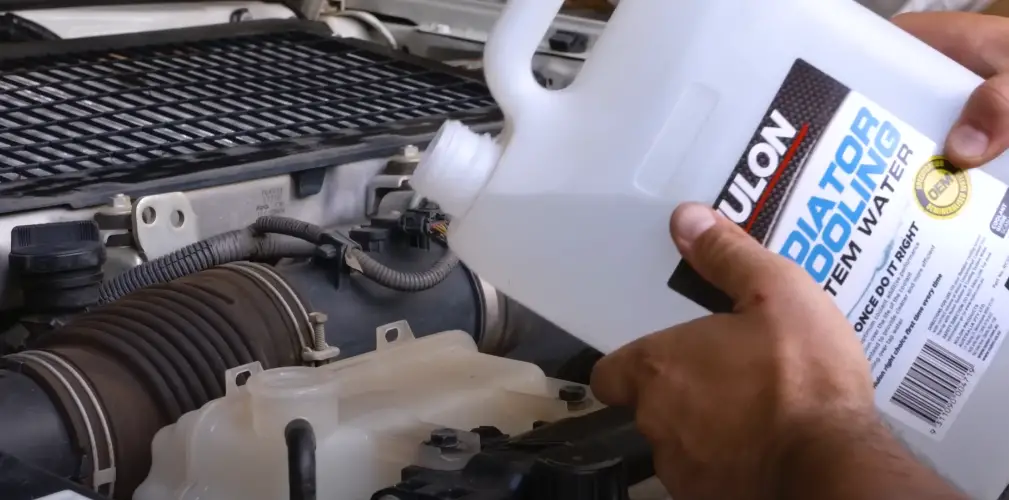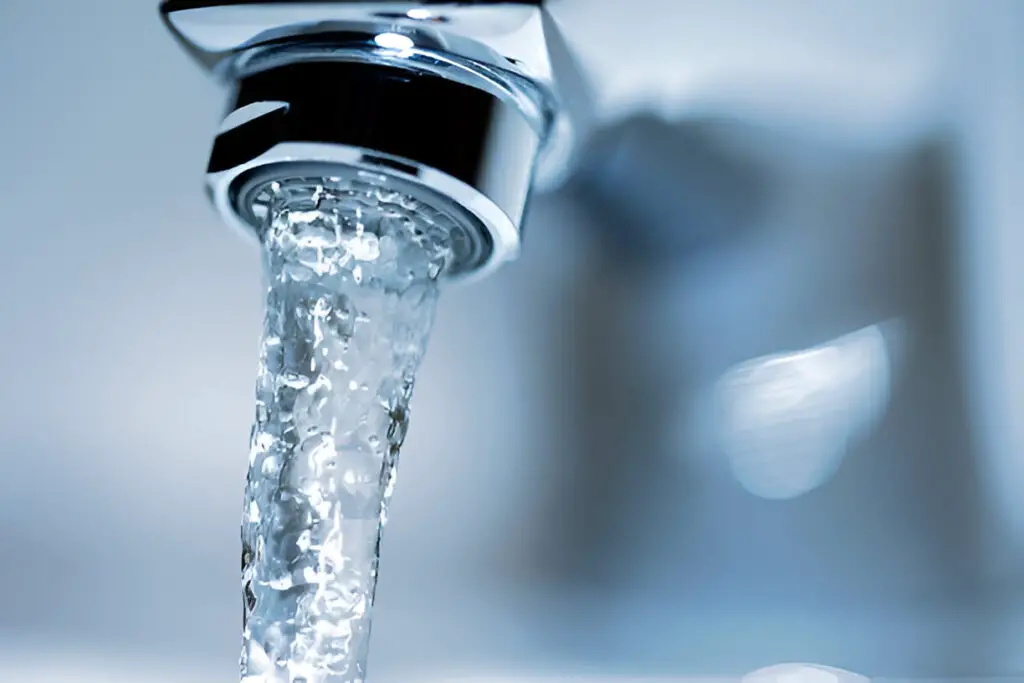When deciding between distilled and tap water for your radiator, distilled water is the better choice due to its purity, which prevents scale buildup and corrosion in the cooling system. Tap water, while convenient, contains minerals and chemicals that can lead to long-term issues like overheating and reduced coolant effectiveness. For optimal radiator health, distilled water is recommended.
When it comes to maintaining your vehicle’s cooling system, the type of water you use in your radiator can significantly impact your engine’s performance and longevity. Two of the most common choices are distilled water and tap water. While they may seem similar, the differences between them can lead to very different outcomes for your vehicle.
This article will explore the characteristics of both options, their impact on your radiator and cooling system, and which one is ultimately the better choice.
Contents
Role of Water in the Radiator
Your vehicle’s cooling system is designed to regulate the engine’s temperature, preventing it from overheating and causing damage. The radiator plays a central role in this system by dissipating heat from the engine coolant into the surrounding air. The coolant is typically a mixture of water and antifreeze, and water’s role in this mixture is crucial because of its excellent heat transfer properties.
However, not all water is created equal. The choice between distilled and tap water can influence how effectively your cooling system functions and how long it lasts.
What is Distilled Water?
Distilled water is water that has undergone a purification process involving boiling and condensation. This process removes impurities, including minerals, salts, and other contaminants, resulting in water that is almost entirely pure H₂O.
Benefits of Using Distilled Water in the Radiator
Using distilled water in the radiator offers several benefits:
- Prevents Scale and Mineral Deposits: Distilled water lacks the minerals found in tap water, such as calcium and magnesium. When these minerals are present in the cooling system, they can form deposits known as scale. Scale buildup can restrict coolant flow, reduce heat transfer efficiency, and eventually lead to overheating and damage to the radiator and engine.
- Reduces Corrosion: The absence of impurities in distilled water means there are fewer contaminants that can contribute to corrosion within the radiator and cooling system. Corrosion can weaken the radiator, cause leaks, and degrade the effectiveness of the cooling system.
- Maximizes Coolant Life: Using distilled water helps maintain the chemical balance of the coolant mixture. Tap water’s impurities can interact with the antifreeze, reducing its effectiveness and shortening its lifespan.
Disadvantage of Distilled Water
Using distilled water in the radiator has a few disadvantages:
- Lacks Essential Additives: While distilled water is pure, it doesn’t contain the additives found in some types of premixed coolant, such as anti-corrosion agents and lubricants. If you’re using pure distilled water, you’ll need to ensure that your antifreeze contains these additives to protect your cooling system.
- Not Always Convenient: Distilled water may not be as readily available as tap water, making it less convenient for those who need to top off their radiator in a pinch.

What is Tap Water?
Tap water is water supplied by municipal sources and is generally treated to remove harmful bacteria and contaminants. However, it still contains dissolved minerals and chemicals, such as chlorine, that can affect its suitability for use in a vehicle’s cooling system.
Benefits of Using Tap Water in the Radiator
Using tap water in the radiator offers several benefits:
- Convenience: Tap water is readily available, making it a convenient choice for those who need to quickly top off their radiator.
- Cost-Effective: Unlike distilled water, which may need to be purchased, tap water is essentially free, making it a more cost-effective option for those on a budget.
Disadvantage of Tap Water
Using tap water in the radiator has a few disadvantages:
- Mineral Deposits and Scale: The minerals in tap water can lead to scale buildup within the cooling system. Over time, this scale can clog the radiator, reduce the efficiency of heat transfer, and increase the risk of overheating.
- Corrosion: Tap water often contains chlorine and other chemicals that can contribute to corrosion within the radiator and cooling system. Corrosion can lead to leaks, reduced cooling efficiency, and potentially costly repairs.
- Shortens Coolant Life: The impurities in tap water can interact with antifreeze, reducing its effectiveness and leading to a shorter lifespan for the coolant mixture.

Which is Better: Distilled Water or Tap Water?
When deciding between distilled water and tap water for your radiator, the answer depends largely on your priorities.
- For Long-Term Maintenance: If you’re focused on the long-term health of your vehicle’s cooling system and want to minimize the risk of scale buildup, corrosion, and other issues, distilled water is the superior choice. Its purity ensures that your radiator and engine remain free from harmful deposits and that your coolant mixture maintains its effectiveness over time.
- For Convenience and Cost: If you need to top off your radiator quickly and don’t have access to distilled water, tap water can be used in an emergency. However, it’s essential to understand that regular use of tap water can lead to long-term issues that may outweigh the short-term convenience.
Best Practices for Radiator Maintenance
Regardless of whether you choose distilled or tap water, there are some best practices you can follow to ensure your cooling system remains in optimal condition:
- Use a 50/50 Mixture: For most vehicles, a 50/50 mixture of water and antifreeze is recommended. This balance provides the best protection against both overheating and freezing.
- Flush Your Radiator Regularly: Over time, even with distilled water, contaminants can build up in your cooling system. Regularly flushing the radiator and replacing the coolant helps maintain efficiency and prevents long-term damage.
- Check for Leaks: Regularly inspect your radiator and cooling system for leaks. Early detection can prevent more significant issues down the road.
- Monitor Coolant Levels: Keep an eye on your coolant levels and top off as needed. Low coolant levels can lead to overheating and engine damage.
- Consider Your Climate: In colder climates, ensure that your coolant mixture provides adequate freeze protection. In hotter climates, focus on maintaining the cooling system’s efficiency to prevent overheating.
Related Article
Can You Put Water in the Radiator?
Bubbles in Radiator When Running
Will Radiator Pull Coolant from Reservoir?
Frequently Asked Questions
Here are some FAQs about the radiator distilled versus tap water –
1. Can I mix distilled water with tap water in my radiator?
Yes, you can mix distilled water with tap water in your radiator, but it’s not ideal. The impurities in tap water can still cause issues, so it’s best to stick to one type, preferably distilled water, to minimize the risk of scale buildup and corrosion.
2. How often should I flush my radiator if I use tap water?
If you use tap water, it’s recommended to flush your radiator more frequently, around every 30,000 miles or every two years, to prevent the buildup of scale and other contaminants.
3. What happens if I only use tap water in my radiator?
Using only tap water in your radiator can lead to scale buildup, corrosion, and reduced coolant effectiveness over time. These issues can cause overheating, leaks, and potential engine damage.
4. Is it safe to use distilled water alone without antifreeze?
While distilled water is safer than tap water in terms of preventing scale and corrosion, it lacks the freeze protection and anti-corrosion additives found in antifreeze. It’s crucial to use a mixture of water and antifreeze for optimal cooling system performance.
5. Can I use bottled water in my radiator?
Bottled water may be better than tap water but is not as pure as distilled water. It can still contain minerals that could contribute to scale buildup. If distilled water isn’t available, bottled water is an acceptable temporary alternative, but it’s best to switch to distilled water as soon as possible.
Conclusion
Choosing between distilled and tap water for your radiator may seem like a minor decision, but it can significantly impact the health and longevity of your vehicle’s cooling system. While tap water may be more convenient, the purity of distilled water makes it the better choice for preventing scale buildup, corrosion, and other long-term issues.